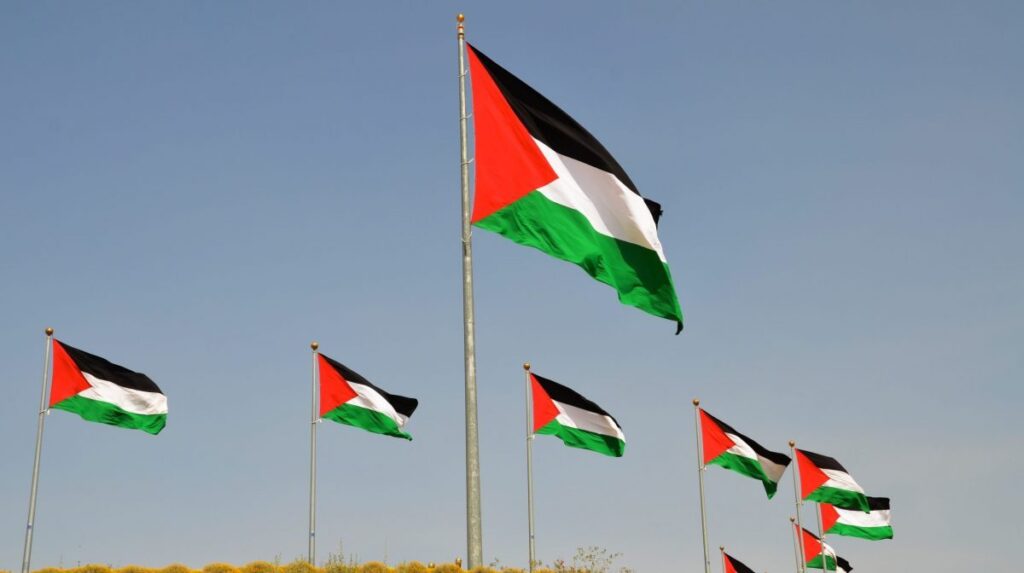The ceasefire deal is being celebrated, but there are also concerns Israel could backtrack, and that it won’t end the decades-long occupation
The news of a ceasfire deal in Gaza have been welcomed, but groups fear Israel could renege on the agreement and warn it won’t end the occupation of Palestine.
After 734 days of Israel’s war in Palestine, it has been announced that a ceasefire will begin in Gaza within 24 hours after this evening’s Israeli cabinet meeting.
This comes after Donald Trump’s announcement that Israel and Hamas have agreed to the first phase of a ceasefire deal. Israel confirmed that it signed a final draft of the deal this morning.
On X, Palestine Solidarity Campaign wrote: “We share the huge relief expressed across Palestine this morning that a ceasefire, however tenuous, might now take effect.
However, they said: “Israel’s bombing campaign had not stopped in the past few days as talks were underway, and the casualty numbers have continued to mount.
“Palestinians in Gaza desperately need the bombing to end, and the prospect of a prisoner release is also positive”.
PSC highlighted that Gaza needs an “immediate influx of aid” to prevent mass starvation.
They also voiced concerns about Israel backtracking on the ceasefire deal.
“We also share the trepidation of the Palestinian people rooted in the knowledge that Israel has violated every ceasefire agreement it has ever signed. Far-right Israeli ministers have already indicated that they will reject a ceasefire and vote to continue the genocide.”
They also believe Trump’s plan “will not bring an end to Israel’s decades of apartheid and oppression of the Palestinian people”.
“Israel’s ramped up ethnic cleansing in the West Bank is not addressed in this agreement and can now be expected to escalate further,” they said.
The International Centre of Justice for Palestinians also welcomed the deal, and said “an immediate end to the relentless atrocities against the Palestinian people is callously overdue”.
However, they also shared concerns that Israel breached a previously agreed ceasefire deal which came into effect on 15 January, and ended on 18 March, when Israel launched an airstrike that killed at least 404 Palestinians as they slept in their tents.
The ICJP wrote in a statement: “Back in March, Israel reaffirmed its disregard for abiding by a ceasefire, international law and the lives of Palestinians, so today we ask: what, if anything, has changed?”.
The statement also said: “While a ceasefire may bring a stop to the immediate Israeli atrocities in Gaza, it cannot be considered as an accomplishment without ensuring that accountability is upheld, complicity in international crimes is brought to an end, unhindered humanitarian relief for Gazans is allowed to flow, and ensuring Palestinians are afforded their right to self-determination.”
Prime Minister Keir Starmer has said the new ceasefire deal marks “a moment of profound relief that will be felt around the world”.
Lib Dem leader Ed Davey said: “News of a ceasefire deal in Gaza brings real hope. The UK and our allies must do all we can to get the hostages home, get aid in to starving people, and finally end this horrific violence.”
Since 7 October 2022, Israeli strikes on Gaza have it has killed more than 67, 139 Palestinians, of which 20,000 of them were children, 1,722 health and aid workers and over 248 journalists.
Olivia Barber is a reporter at Left Foot Forward
Left Foot Forward doesn’t have the backing of big business or billionaires. We rely on the kind and generous support of ordinary people like you.
You can support hard-hitting journalism that holds the right to account, provides a forum for debate among progressives, and covers the stories the rest of the media ignore. Donate today.




